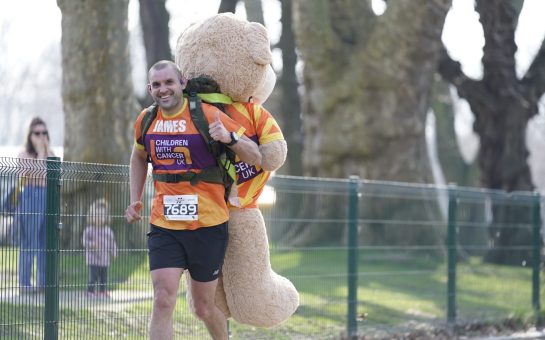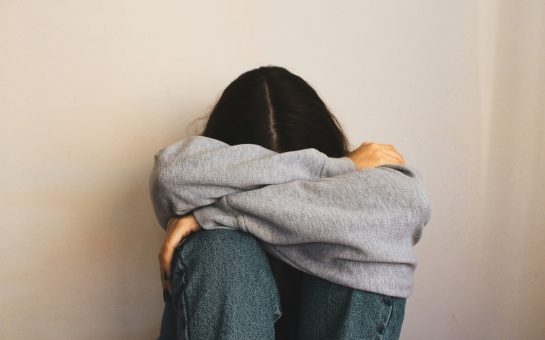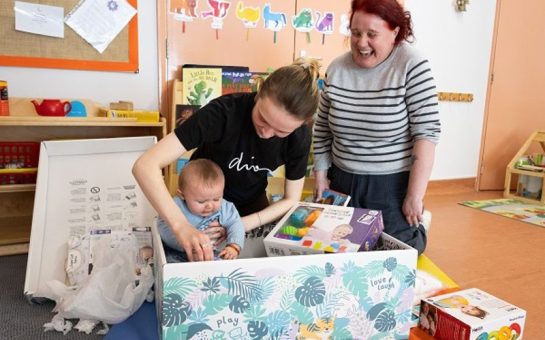A leading children’s charity has warned that children are suffering from mental and emotional health issues as a result of the coronavirus pandemic.
The latest study by the NSPCC found that there were 54,926 counselling sessions with children and young people who contacted Childline between April 2020 and December 2020.
The top concerns children spoke to them about were anxiety, isolation, fear of loved ones dying, loneliness and low self-esteem.
Shoreditch based Childline counsellor Sally McFawn said: “The impact is massive, we have definitely seen a big increase in calls across Childline and our helpline services.
“As much as we are worried about the economy, worried about schools, we kind of forget about children in all this. It’s really impacting them at the minute.”
The service delivered between 5000 to 7000 counselling sessions every month, with the numbers fluctuating throughout the year as the situation changed and coronavirus restrictions were lifted and re-imposed.
The monthly average of counselling sessions on mental health for under 11’s increased by 16%, with the average monthly number of counselling sessions on loneliness also rising by 10% compared to the pre-lockdown period.
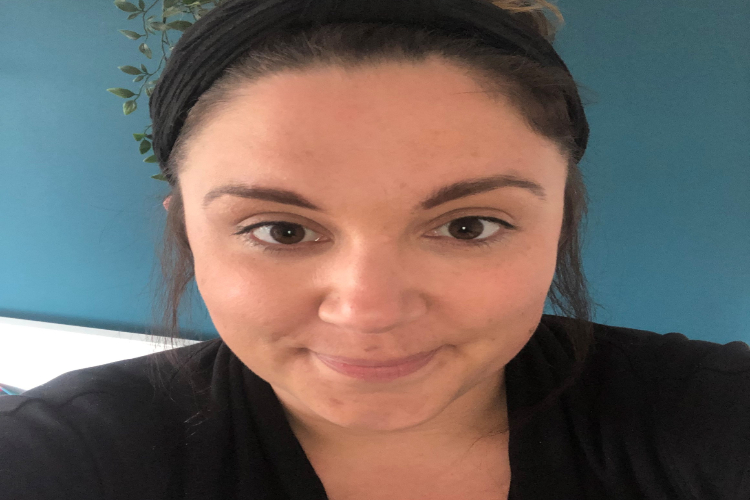
The study has validated many parents’ concerns that the pandemic and successive lockdowns may be a key factor in seeing changes in their child’s behaviour.
Charlotte, 34, has a four-year old son named Freddie.
She said: “The thing that’s a bit concerning at the minute is his lack of interest in anything, unless me or my husband are with him.
“During the first lockdown, he would be quite teary at bedtime and he would talk about his friends who he really missed. There is one little boy in particular, who was his best friend at nursery and he kept asking when he was going to see him again.
“It’s a constant cycle of guilt really. Feeling like you’re not doing enough or you’re not doing the right thing. But you don’t know what the right thing is.”
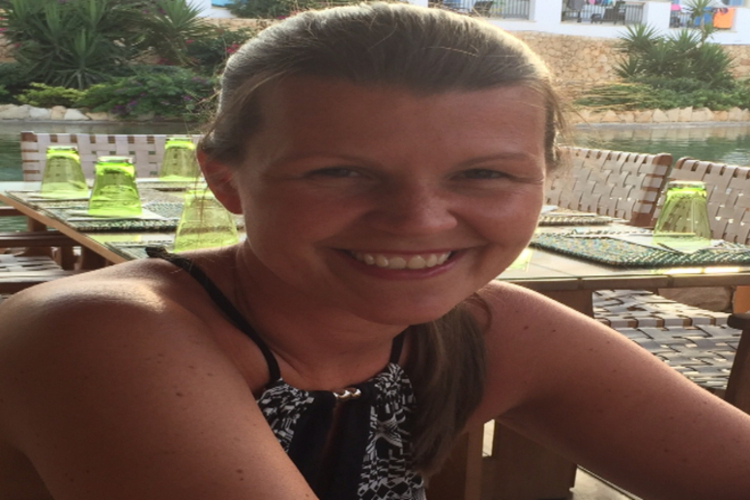
The first lockdown is said to have magnified the struggles for children with existing worries.
Redbridge based Childline counsellor Caroline Roughley said: “Without a doubt the first lockdown had an impact on children’s mental health.
“For many children it was the first time they’d contacted us. For other children with existing worries, lockdown just magnified them.
“Last year there were worries we hadn’t had before, about the virus and how it was going to affect their friends and families, not having that contact with them, missing school and their routine. Worries about work and exams were really prevalent at the time.”
Sam, 43, is from Ealing and has an 11-year-old daughter Sofia who has Asperger syndrome.
Sam explained how Sofia became obsessed with washing her hands at the beginning of lockdown until they became chapped and sore.
She then went on to fear that her food had been contaminated, strictly limiting her diet, and going from someone who loved food to someone terrified of contamination because of the virus.
Sam said: “Sofia’s behaviour has been up and down through the successive lockdowns but it’s really all pinpointed around the contamination of food more than anything else.
“It’s worth pointing out that children with neurological differences are seeing or feeling it in a different way.
“I would want to remind politicians and the government that we already had a mental health epidemic before this pandemic and I think it’s just going to be so much worse afterwards, and that they should be thinking about what they are going to do about it.”
Despite the outstanding number of calls, Childline is on the lookout for volunteers who are able to help with the influx after volunteer numbers dropped by 40% since the start of the pandemic.
Childline Founder and President, Dame Esther Rantzen said: “With schools now shut again and children spending more time behind closed doors, it is absolutely imperative that Childline is there for them.
“The service urgently needs more volunteers to listen to and support children, and more funds to pay for their calls and on-line contacts, and for that we depend upon the generosity and compassion of the public.”
This study follows existing research by Childhood Trust and an Italian study last June, showing that children have become more irritable and anxious because of coronavirus lockdowns which in some cases is leading them to develop post traumatic stress disorder.
Dr Karen Hathaway is a Clinical Psychologist working with children who have complex mental problems including anxiety, depression, trauma, challenging behaviours and developmental disorders.
She is often asked for her advice from parents who are increasingly worried about their child’s behaviour.
She said: “I would say being calm in front of your child, helping them to understand things are safe, helping to explain things to them in a clear and concise way. Not giving them too much information but not leaving them to fill in holes or gaps in information.
“I think it’s been said a few times before but we always use the oxygen mask analogy a lot with parents.
“I think that is probably worth reiterating to parents that it is so important for them to be looking after themselves and their own well being, so that they can look after their child and contain their child’s fears and manage their child’s worries and anxieties.”
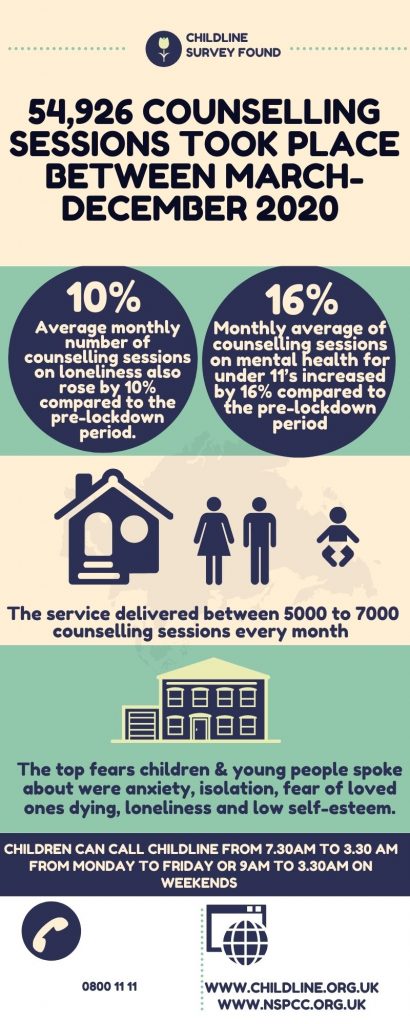
Childline Counsellor Sally added: “There is no written manual to manage a pandemic and it’s so hard to see the impact it is having on your child.
“I’d say talk to your children. It is important that you keep those lines of communication open, and have some fun”.
Children can call Childline on 0800 11 11 from 7.30am to 3.30 am from Monday to Friday or 9am to 3.30am on weekends or they can get in touch via www.childline.org.uk.
You can read more about children getting outside to benefit their mental health during the coronavirus pandemic here.
Feature Image: Greens MPs on Flickr
